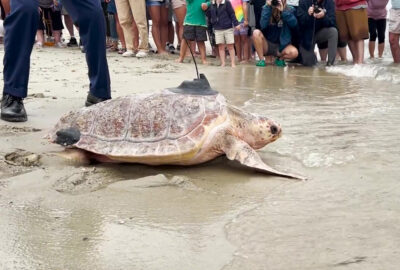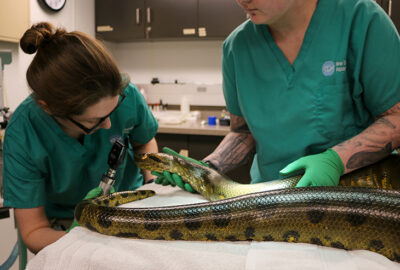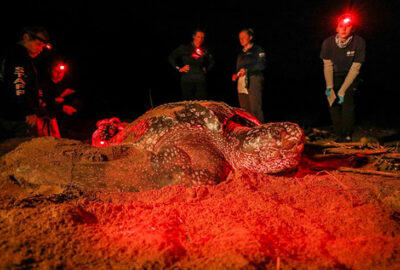Scientists Pioneer Tagging Procedure for Threatened Sea Turtles
By New England Aquarium on Tuesday, November 09, 2021


By
Over the next few years, Anderson Cabot Center for Ocean Life Drs. Kara Dodge and Charlie Innis are hoping to learn enough about the habits and patterns of threatened loggerhead turtles by utilizing data from surgically implanted acoustic tags—a first-of-its-kind effort. This technique could revolutionize how scientists monitor threatened and endangered turtles over long periods of time.
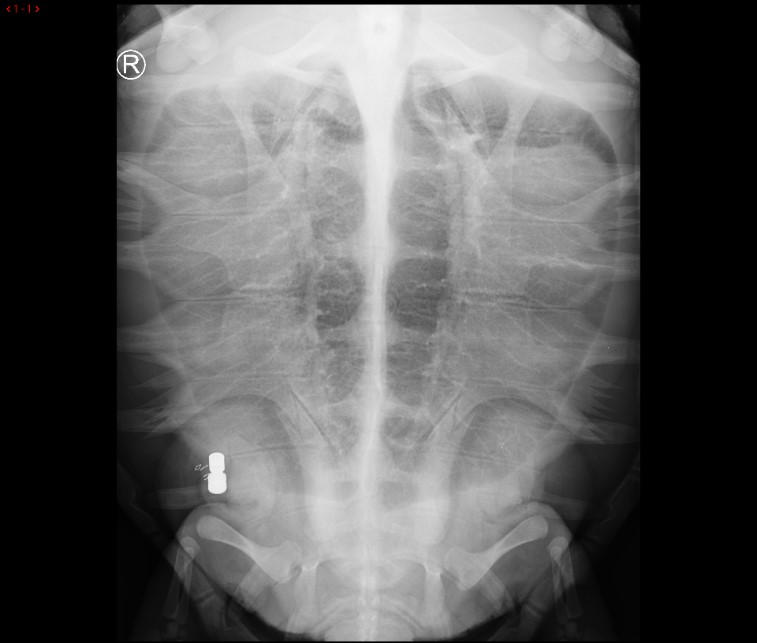
Alongside the Aquarium’s Rescue team, the two are working on an acoustic tagging project to help track the sea animals for several years. Tagging turtles is not a new concept, but implanting the tag internally versus externally on their shell by using epoxy is.
Acoustic tags ping listening stations—like an E-ZPass system—to reveal when an animal passes by. These tags have a battery life of three to 10 years, depending on the tag size (tag size depends on turtle size). The hope is to uncover information about how rehabilitated and released loggerhead sea turtles utilize the ocean, and whether or not they return to nesting sites.
In collaboration with Dr. Dodge and the Aquarium’s Rescue and Animal Health teams, Dr. Innis, director of Animal Health for the New England Aquarium, performed the implantation procedures. The turtles recovered well from the surgeries and exhibited regular swimming and feeding activity.
Recently, Aquarium scientists recovered acoustic receivers from Nantucket Sound, which showed multiple detections from three loggerhead sea turtles: Peanut, Glossy Ibis, and Captain Kool-Aid. The three turtles were rehabilitated at the Aquarium’s sea turtle hospital and released with implanted acoustic tags earlier this year. The data, which should transmit for at least three years, not only shows the turtles thriving in the wild but it provides researchers with valuable information on where the turtles are traveling and likely feeding.
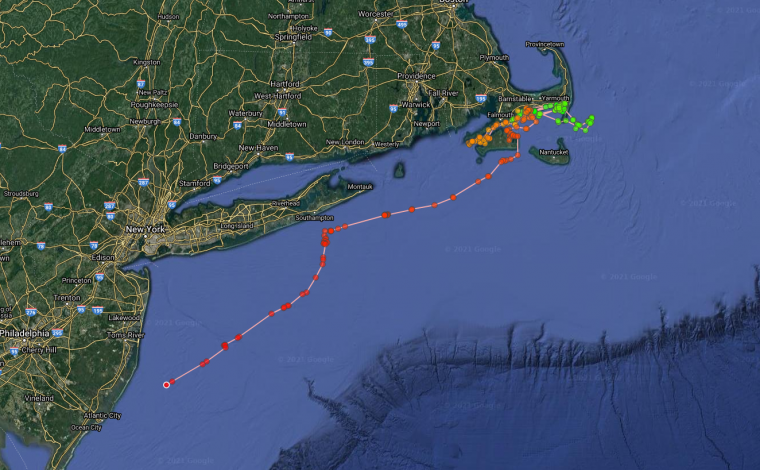
“The less expensive acoustic tag lasts longer than satellite tags, so they are an excellent choice for monitoring survival and movements of a greater number of turtles over a longer period of time, a high priority for our conservation program,” Dodge, a research scientist explains.
The tagging helps her and the rest of the team assess the turtles’ survivorship over time and alerts her to the turtle’s resumption of normal behaviors in the wild. Before being released into the ocean, the turtles spent months at the Aquarium’s Sea Turtle Hospital after becoming cold-stunned and stranded on Cape Cod beach last December.
The gentle animals look for warmer waters during the winter season but can get stuck in the hook-shaped bay near Cape Cod. After prolonged exposure in too-cold water, typically around 50 degrees, their heart rate and circulation slow down, leading to lethargy, shock, pneumonia, and sometimes even death.
Aquarium staff treated the rescued loggerhead turtles for various medical conditions, including hypothermia, pneumonia, and bone fractures, before they were cleared by staff veterinarians to be released back into the wild.
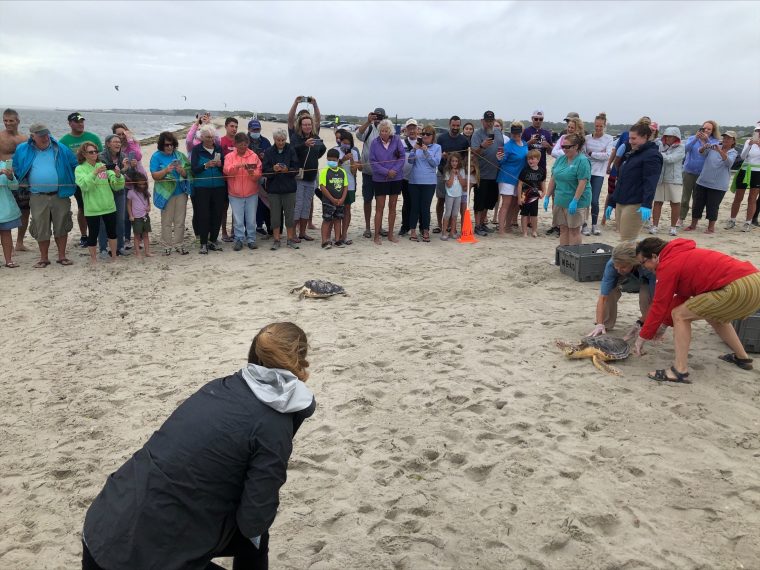
This research is being conducted under U.S. Fish and Wildlife Rescue permit #ES69328D.

